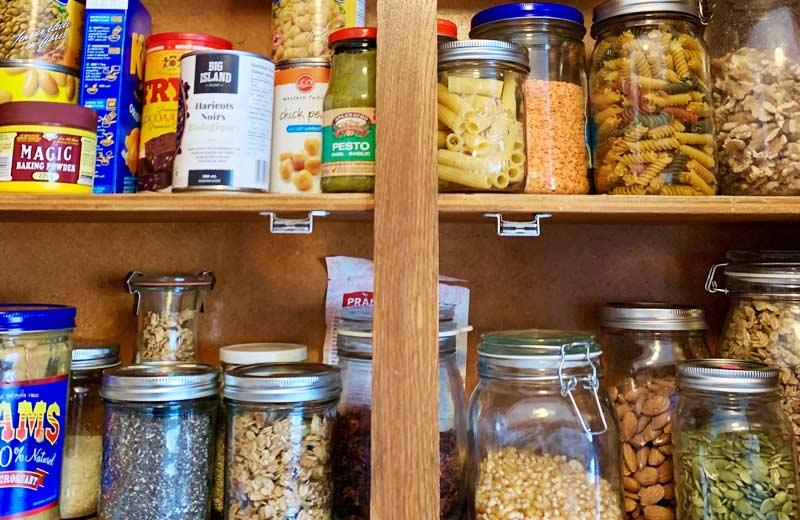COVID-19 is affecting all of us differently. Many people are working from home, are working more or less than usual, are at home with the kids, and are engaging in less social interaction. For some, this might be life as usual; for others, it may represent a complete change in routine.
This change in routine may cause us to look differently at food and how we’re eating. Some people may have more time to meal plan and cook, and get creative in the kitchen. Others may have little time and energy to focus on meals, and will make do with quick meals and snacks, ready-made foods, and eating on the run.
Creating a well-stocked and organized pantry can help with meals, and supports physical distancing by reducing the number of trips to the grocery store. Wondering where to start? Consider the following tips.
Take stock of your pantry
- Inventory your cupboards, fridge, and freezer
- Check “best before” dates, which refer to food quality (not food safety)
- Plan to use older items first
Wondering about the shelf life of different foods? Check out this interactive guide, or the FoodKeeper phone app.
Plan ahead
Grocery stores are being re-supplied regularly, so stockpiling large amounts of food is unnecessary. The purpose of having a supply of food at home is to limit unnecessary trips to the store, thereby reducing contact with others.
- Create a list of what’s missing from your pantry. If it helps, create a meal plan as a guide. Check out dietitian Flo’s blog on simple and flexible “ish” recipes.
- Dietitians of Canada has a list of shelf-stable items to have on hand.
- Make a shopping list. Check your pantry, fridge, and freezer to see what foods you need.
At the grocery store
Choose versatile, shelf-stable products, such as:
- Dried or canned beans, lentils, and chickpeas
- Pasta and pasta sauces
- Canned soups and stews
- Canned vegetables, fruits, meats, and fish
Consider buying some longer lasting perishable foods, such as:
- Protein foods: eggs, firm tofu or tempeh, frozen meats and fish
- Vegetables: potatoes, sweet potatoes, winter squash, beets, carrots, cabbage, and onions
- Fruits: Oranges, grapefruit, apples, and unripe bananas
While shopping, maintain at least 2 metres between yourself and others, and practise proper hygiene recommendations.
Store foods well
- Practise proper food storage with this quick guide to proper food storage.
- Organize foods so you have a sense of what you have on hand. A list might help.
- Plan meals and snacks with what you have on hand, prioritizing those foods that need to be used first.
Reach out if you need help
- Can’t get to the grocery store? Consider asking friends, family, or neighbours to pick up supplies for you.
- Experiencing financial challenges? Local food programs, such as those run by schools, food banks, churches, friendship centres, and other organizations may have changed how they are providing services. Check out BC211 for information on possible local services. Call ahead and ask about available supports.
- Have specific nutrition questions? Dietitians at HealthLink BC are just a phone call or email away. Call 8-1-1 or use their online email platform.














Comments